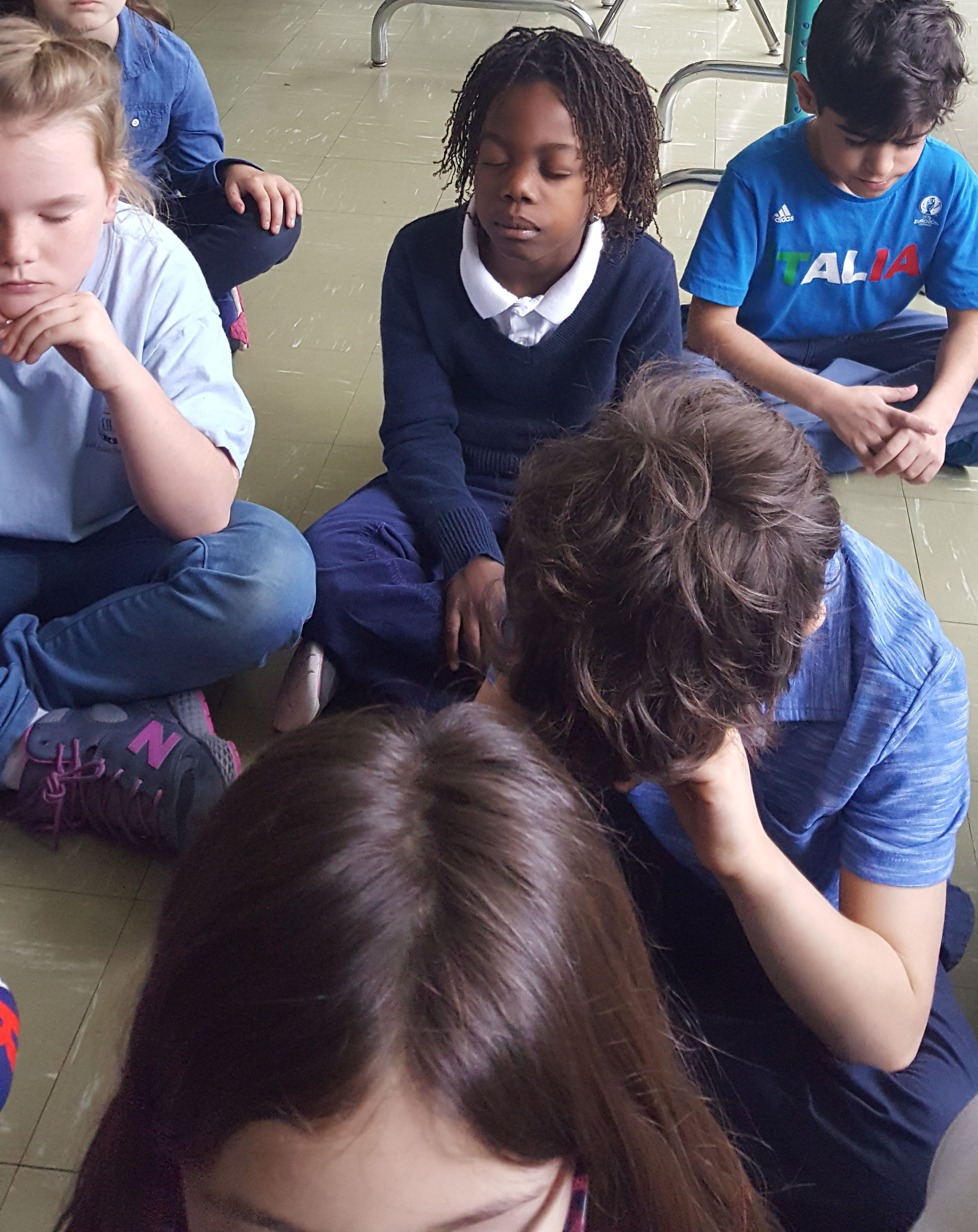#WeCare
The Ruler Approach (by Yale University’s Center for Emotional Intelligence).
Edward Murphy School’s climate helps children increase their emotional intelligence through practicing social emotional learning skills with the #WeCare approach, teachers and other staff ensure lasting academic and emotional success for all students.
Description
At Edward Murphy #WeCare by using a combination of numerous evidence based approaches to ensure the wellbeing of our students. This is done with the emphasis on the following:
RULER:
Educating students throughout the day on emotional intelligence using the RULER approach.
Behaviour Management:
Implementing collaborative problem solving within the behaviour management protocol to promote appropriate decision making and problem solving skills.
Self-regulation:
Helping students learn self-regulation skills by providing them with opportunities, a framework (4 pillars) and the space (Harmony room) to practice
self-control and learn appropriate strategies to deal with their emotions.
Evidence Based Approaches:
RULER: Promoting Emotional Literacy
RULER is a social-emotional literacy curriculum developed by Yale University’s Center for Emotional Intelligence. Built upon evidence-based research
demonstrating the impact of emotions on life, the RULER Program develops emotional intelligence through the practice of social emotional learning skills.
Members of our team went to Yale RULER training sessions and have in turn shared this training with the rest of their school staff.
RULER promotes:

The Anchors of Emotional Intelligence
The Anchors of Emotional Intelligence are evidence-based tools designed to enhance the emotional intelligence of school leaders, teachers and staff,
and students and their families.
RULER includes four primary tools:
Behaviour Management:
The teachers, staff members and principal work closely with the children to help them through the process of understanding the skills
the child may be lacking rather than the disruptive behaviours they may be exhibiting thus understanding what the unsolved problems
really are. The main goal is for the adult to understand the child’s concern and perception of the problem and discuss the adult’s
concern and perception of the problem in order to assist them in finding a solution. Doing so, students learn how to solve problems
collaboratively within a learning environment. Our reflection sheets and incident reports focus on communicating with the child to help
them discuss the issues at hand and build empathy through listening to the other persons concerns as well.
The following is a breakdown of how our teachers staff members and administration and parents handle difficult situations that may arise:
Tier 1:
Classroom behaviour
Minor disputes between students
Line up issues
Hallway issues
Consequence
Communication using the collaborative problem solving approach.
Letter in the agenda letting informing parents of the current situation at hand and what was discussed with the student.
Tier 2:
Theft
Sexual misconduct (intentional unwanted bodily contact of a sexual nature, exposure of private parts or unwanted sexual attention)
Vandalism (school property or personal property)
Name-calling (coarse language)
Disrespect towards fellow students or teachers
Major disputes (need assistance from a technician or principal)
Repeated offences of tier 1
Consequence
Incident report will be written and placed in the child’s file, recess
or lunch reflection time to discuss the situation and assist the child in finding a solution, contact parents via phone call.
Tier 3:
Bullying
Agression
Racism
Repeated offense of tier 2
Consequence
-Incident report will be written and placed in the child’s file, recess or lunch reflection time to discuss the situation and assist the child in finding a solution.
-Suspension, home suspension or longterm suspension will be set in place, depending on the severity. The student will be assigned to the technician during in-shCool suspension. He or she will be expected to complete work given by their teacher and complete work from the behaviour strategy booklet.
*Any issues relating to attendance, child welfare, health concerns, child protection please write an incident report. Parents may be contacted. If needed, measures will be taken such as communicating with appropriate resources.
Self-regulation:


At Edward Murphy we emphasize learning positive self-regulation skills mindfully. Students need to be aware of the self-destructive ways in which they may use to feel better such as; screaming, hitting, or destroying property. Students learn proactive strategies to self-regulate their emotions. They learn how to have self-control by assessing what strategies are appropriate for specific moments of the day using the four pillars. The students are encouraged to use the harmony room to practice these skills when needed and transfer it to their everyday experiences.
